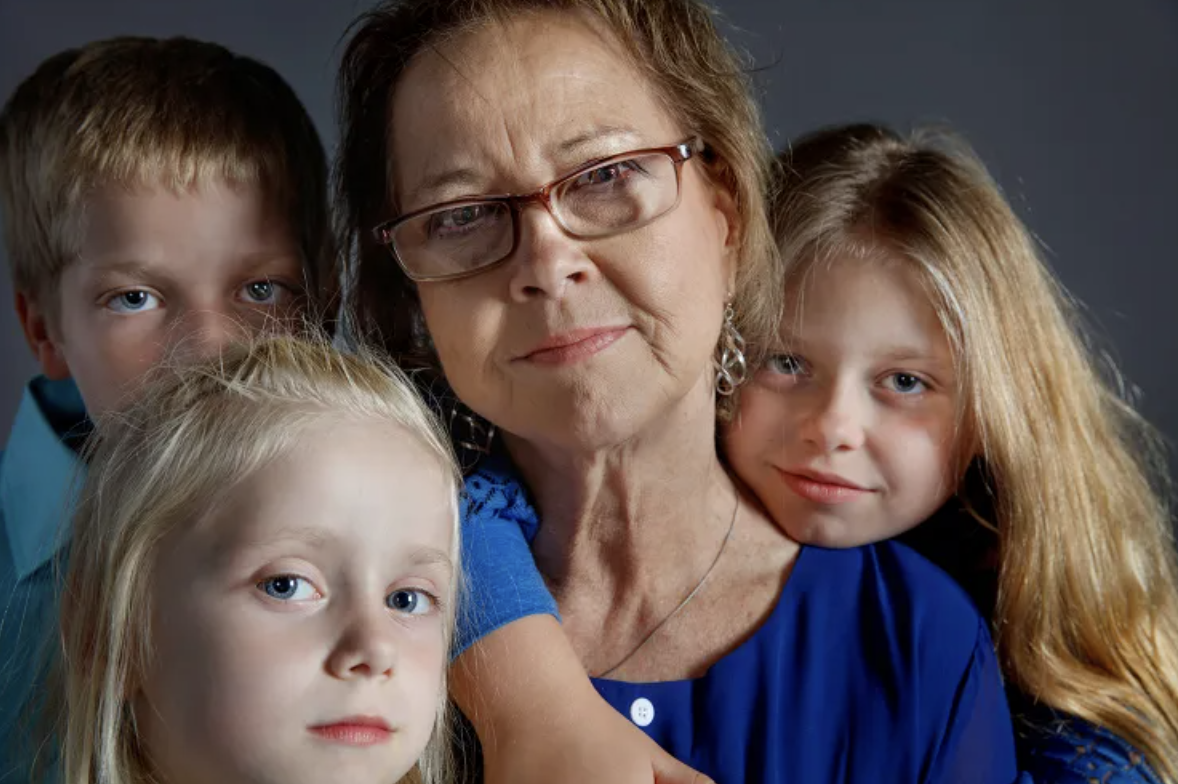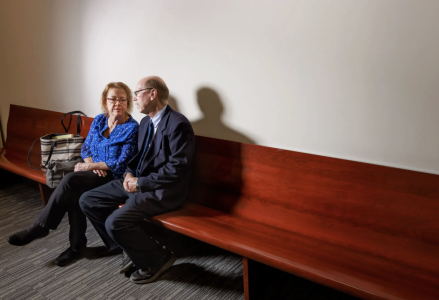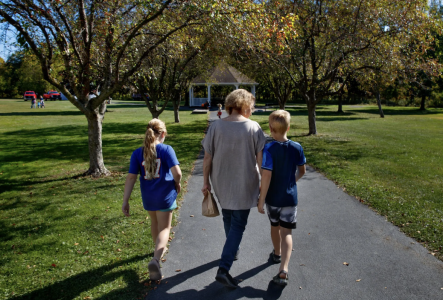
Family stories take many shapes, but few unfold quite like the journey of a mother in her late sixties whose household continued to grow long after most parents become empty nesters.
Her path into later-life motherhood led to unexpected turns, raising questions about love, responsibility, and how far someone will go to bring a child into the world.
What began as an extraordinary personal decision eventually became a headline-making legal showdown that captured national attention.
The case now stands as one of the most complicated examples of modern parenthood and the laws that govern it.
A family that kept growing in unexpected ways
MaryBeth Lewisa, a 68-year-old nurse from New York, began her journey into motherhood in the usual way but quickly took a turn for the extraordinary. By 2010, she and her husband, Bob, a retired FedEx pilot, had welcomed their eighth child—a girl, just like her seven older sisters. “That first child was the biggest change. After that, they kind of fell into place,” MaryBeth once joked to a local paper, reflecting the humor and resilience that would become her trademark.
But the Lewis family didn’t stop at eight. Over the years, MaryBeth and Bob expanded their brood using a mix of in vitro fertilization (IVF), donor eggs, and donor sperm. After the first five children, every pregnancy was a carefully orchestrated medical miracle, with MaryBeth carrying each one herself—until her 13th child, born when she was 62.
The surrogacy decision that triggered legal chaos
The real drama began in 2023, when MaryBeth, determined not to let any remaining embryos go to waste, decided to use a surrogate for the first time. The decision resulted in twins—a boy and a girl—her 14th and 15th children. But what should have been a joyful addition to the family quickly spiraled into a legal nightmare.
According to court documents and a detailed New York Times investigation, MaryBeth forged her husband’s signature on the surrogacy agreement, violating state law that requires both parents’ consent. She even went so far as to impersonate Bob during a virtual court hearing, logging in under his name and grunting in assent when the judge addressed him. Bob, who had made it clear he didn’t want more children, only discovered the truth when the parentage order arrived in the mail.
Also read: Unexpected mix-up at fertility clinic: A story that raises important questions
Felony charges and a custody battle with no easy end
The fallout was swift and severe. MaryBeth was indicted on multiple felony charges, including forgery, criminal impersonation, perjury, and attempted kidnapping. County officials moved to block both her and Bob from gaining custody of the twins, who were placed with foster parents. The case has dragged on for two years, with MaryBeth refusing plea deals and fighting tooth and nail for custody.
“It’s just terrible what they have done to myself, Bob, and our kids,” she told reporters after a recent hearing. Despite the legal chaos, MaryBeth’s determination to be a mother has never wavered. Her husband, initially blindsided and furious, now supports her quest for custody, as does the surrogate who carried the twins.

A divided family that remains fiercely loyal
Not surprisingly, the Lewis children have had mixed reactions to their mother’s relentless pursuit of a bigger family. Some have been upset, but most have rallied around her. “She’s not perfect, but none of us are,” one daughter said. “She really, truly is a wonderful mom and human being.”
The twins, now two years old, have been largely shielded from the public eye. Their foster parents describe them as happy, curious children who love bedtime stories and the classic picture book Brown Bear, Brown Bear, What Do You See? The foster family, too, has become deeply attached, and is appealing a recent court ruling that named the Lewises as the legal parents.
A legal and ethical puzzle in modern parenthood
MaryBeth’s saga raises thorny questions about the boundaries of parenthood, the ethics of assisted reproduction, and the role of the legal system in family life. Can love and intention outweigh the letter of the law? Should age or unconventional methods disqualify someone from being a parent? And what happens when the desire to nurture collides with the rules meant to protect children?
Attorneys and officials on all sides have expressed astonishment at the case’s twists and turns. “We looked at it first and said, ‘Is this for real?’”admitted the district attorney. Even MaryBeth’s own lawyers were left speechless by the complexity and emotional stakes.
MaryBeth’s story is part of a broader trend: more Americans are becoming parents later in life, thanks to advances in fertility treatments and changing social norms. While some celebrate these new possibilities, others worry about the challenges—both practical and ethical—of raising children in one’s 60s or 70s.
Medical experts point out that while older parents often bring wisdom and stability, they may also face health risks and questions about long-term caregiving. Legal experts, meanwhile, warn that surrogacy and IVF can create complicated situations if not handled transparently and with full consent from all parties.

What comes next for this family
The fate of MaryBeth’s youngest children remains uncertain. A new judge has ruled in favor of the Lewises, but the foster parents are appealing, and the legal wrangling shows no sign of ending soon. MaryBeth has said she plans to change the twins’ names if she regains custody, hoping to give them a fresh start.
Read next:
- Can an organ donor kill you? The shocking Arizona case that will change how you see transplants forever!
- Medical milestone: World’s first pig lung transplant successfully carried out
- America’s aging shift: The risks and what it means for the future
MaryBeth’s story is as heartwarming as it is controversial, and it touches on issues that many in the community have strong feelings about: family, aging, medical ethics, and the power of love to defy expectations.
What’s your take? Do you admire MaryBeth’s determination, or do you think there should be limits to later-life parenthood? Have you or someone you know faced challenges with IVF, surrogacy, or blended families? How do you think the courts should balance the rights of biological, adoptive, and foster parents?






